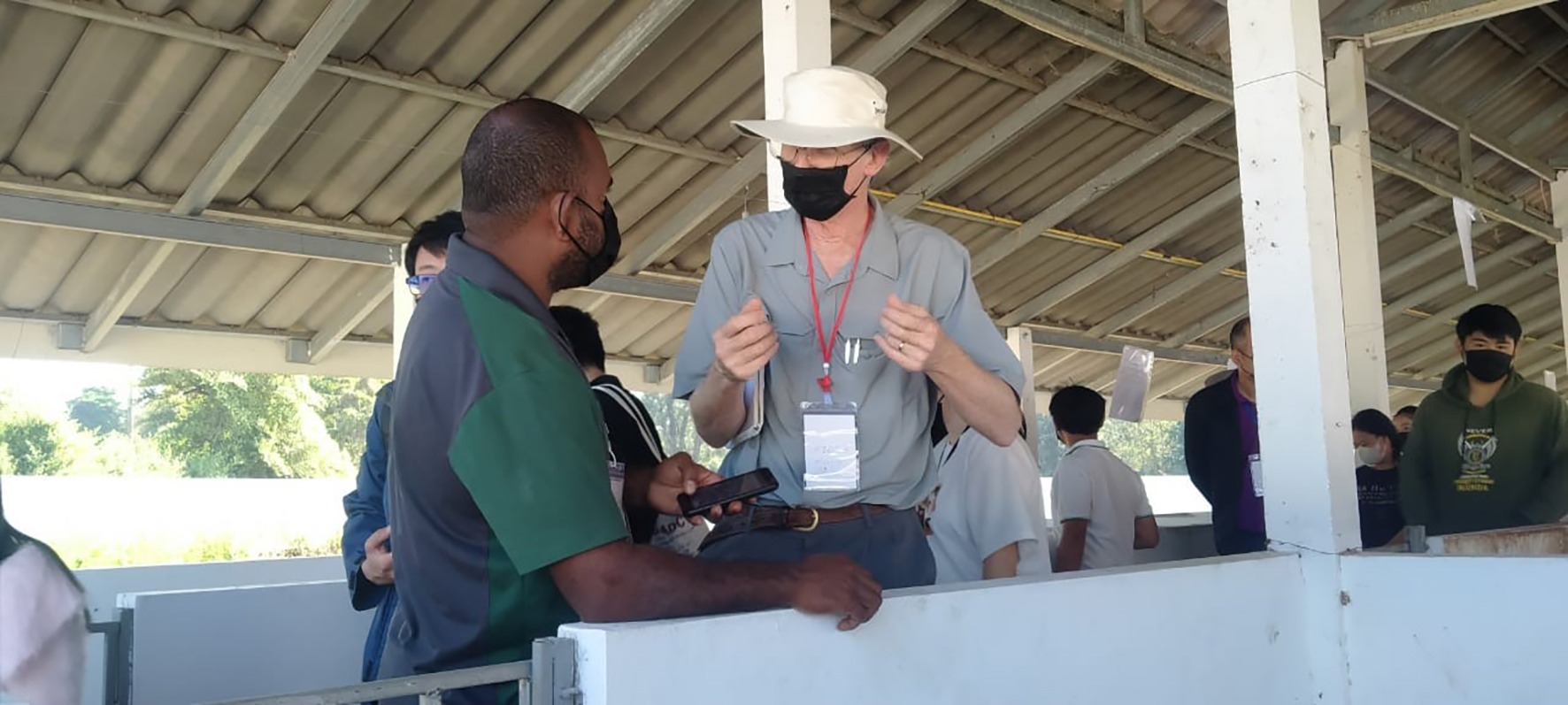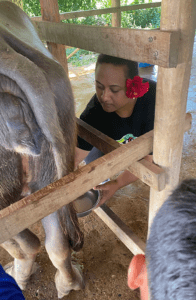

Promoting sustainable animal agriculture for developing countries
May 29, 2024

The Crawford Fund New South Wales Committee recently supported a training initiative to assist the animal science community in Laos in hosting an international conference focused on developing the skills and knowledge of the early career scientific community in the region. This included securing funding for a total of 40 scholarships for early career researchers.
Organised by Adjunct Professor Peter Wynn from the Gulbali Institute at Charles Sturt University, the training was delivered in Vientiane and Luang Prabang in Laos.
“Over a period of two years, training was provided on how to organise a conference, including the development of a website and a locally and regionally relevant scientific program; attraction of sponsors willing to support students and early career scientists to participate in the meetings; and the organisation of field visits highlighting the challenges facing animal production in Laos,” said Peter
Sponsorship supported the participation of young scientists from Laos, Vietnam, Malaysia, Indonesia, Pakistan, China, Taiwan, Thailand, Nepal and the Pacific Islands.

The conference included sessions on environmental influences of greenhouse gas production from ruminant species and how to minimise this threat; regulating animal diets to maximise productivity; One Health approaches to controlling animal diseases across both commercial ruminant and monogastric based industries; the effectiveness of food market chains connecting the producer with the consumer; optimising genetic selection programs using current genetic marker technologies; the importance of animals in small-holder farming communities; the roles of women in farm production, and much more.
The NSW committee has a long history of supporting training programs in Laos led by Professor Lester Burgess and Dr Deirdre Lemerle focusing on plant diseases, agronomic practices and soil health. With this funding, support for the animal production industries has been initiated to build on the excellent extension and research training initiated through staff from the University of Sydney and develop further linkages with Lao animal scientists.
“My colleagues, Professors Thomson, Bush and Windsor from the University of Sydney kindly supervised the young scientists we sponsored while they were present at the conference. Professor Windsor also organised additional training for Ms Faalepeti Pasefika Seuao from Samoa, Mr Sergio Bani from Vanuatu and Dr Sabina Lamsal from Nepal at the AgCoTech feed processing plant and the Laos Buffalo Dairy in Luang Prabang after the conference training was completed,” said Dr Wynn.
A key objective of the training including guidance on how to prepare manuscripts of sufficient standard for inclusion in a special issue of the CSIRO journal, Animal Production Science or the journal supported by the National University of Laos. This is an ongoing process that will continue during 2024 explained Peter.
The initiative of the NSW Crawford Fund committee to provide the seed funding allowed this event to proceed, involving delegates from over 20 countries making nearly 200 presentations to proceed.
“Two young scientists from the Pacific nations of Vanuatu and Samoa were also funded directly by ACIAR.
“The National University of Laos had never hosted an international conference on Animal Science and Production before,” said Peter.
“We now feel confident that the animal science community of Laos will be able to organise their own conference and associated training workshops independent of international agencies in the future,” he concluded.




 0
0